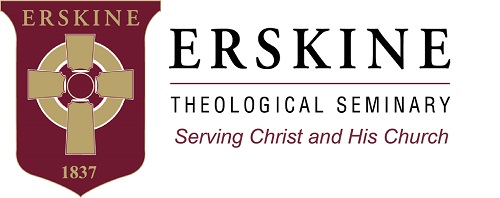From left, the ONA team: Executive Director Morrie Lawing, Office Manager & Events Coordinator Eve…

Erskine College is 185…Seminary is older!
 In celebration of its 185th anniversary, Erskine is constructing an online archive dedicated to preserving and sharing the history of the school and its community. We begin here a series of stories illustrated with images from the archive like the ones shown at the top of the page. We are indebted to A History of Erskine College by the late Professor Emeritus of History Dr. Lowry Ware for much of the historical information included here. The online archive may be viewed here.
In celebration of its 185th anniversary, Erskine is constructing an online archive dedicated to preserving and sharing the history of the school and its community. We begin here a series of stories illustrated with images from the archive like the ones shown at the top of the page. We are indebted to A History of Erskine College by the late Professor Emeritus of History Dr. Lowry Ware for much of the historical information included here. The online archive may be viewed here.
In November 1839, Erskine was established as a four-year college, having operated since 1837 as a theological seminary. This fall, Erskine marks 185 years as South Carolina’s oldest four-year church-affiliated college.
Over nearly two centuries, Erskine has weathered changing culture, an evolving education landscape, financial hardships, war, and natural disasters. Through it all, the institution has stood strong as a Christian college and community, dedicated to educating its students.
How did Erskine College become the heart of Due West, a small town in the rural upcountry of 1830s South Carolina?
It started with the Associate Reformed Presbyterian Church and its commitment to training pastors. The denomination faced two areas of challenge in this endeavor.
First, during the antebellum era, far more colleges could be found north of the Mason-Dixon line than south of it. Students from southern states often traveled hundreds of miles for a college education. Erskine’s first four professors, for example, graduated from Miami University, 40 miles north of Cincinnati, Ohio. Many promising young men from the South chose not to return to their home region after competing college studies in northern states.
Second, in the 1830s, Presbyterian churches outnumbered the men ordained to lead them, with ministers typically serving two or more congregations. To remedy the situation, the ARP Synod began raising funds for a theological seminary conveniently located to serve the Carolinas and nearby states.
Eager to support the synod’s efforts, the “Due West Corner” congregation of the ARP Church pledged $3,000, a large sum at the time, to create a theological school in Due West.
The school was granted its official charter in 1837 under the name “Clark and Erskine Seminary.” It was named for Dr. Thomas Clark (1720-1792), a minister form Ballybay, Northern Ireland, who is considered the father of the ARP denomination in the South, and Ebenezer Erskine (1680-1754), leader of the dissenting ministers who separated from the Church of Scotland.
Just two years later, the board and synod expanded Erskine’s curriculum to a four-year course of study, and in November 1839, Erskine College was born.
Article written by Joyce Guyette


